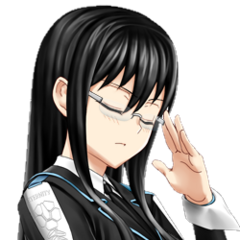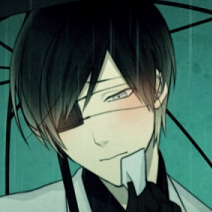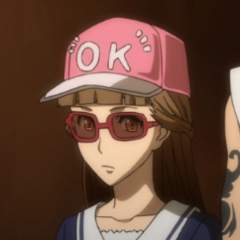Leaderboard
Popular Content
Showing content with the highest reputation on 02/24/21 in all areas
-

Getchu Bishoujo Game Awards 2020
ChaosRaven and 3 others reacted to littleshogun for a topic
It's the time for Getchu's award, and the winner is Cabbage Soft newest detective VNs Sakura no Kumo. It's also interesting to note that there's no Tsui no Sora Remake despite that the new contents did quite well done from what I'd heard, but then again perhaps the focus is on the non-remake VNs that was released back at 2020. Anyway, here's 20 VNs that got the award below and you can view the source from this link. 1. Sakura no Kumo * Scarlet no Koi - Cabbage Soft 2. Dohna Dohna -Issho ni Warui Koto o Shiyou- - Alice Soft 3. Hakuchuumu no Aojashin - Laplacian 4. 9 -Nine- Yukiiro Yukihana Yukinoato - Palette - 5. Summer Pockets REFLECTION BLUE - Key - 6. Amakano 2 - Azarashi Soft 7. Hamidashi Creative - Madosoft 8. Mama x Holic ~Miwaku no Mama to Ama Ama Kankei~ - Atelier Kaguya Bare & Bunny 9. Kara no Shoujo - The Last Episode - Innocent Grey 10. Ren'ai x Royale - ASa Project 11. Kouyoku Senki ExS-Tia 3 - Lusterise - 12. Bishoujo Mangekyou -Kotowari to Meikyuu no Shoujo- - ωstar The fifth and closing story for the Bishoujo Mangekyou series. 13. Akatsuki Yureru Koi Akari - CRYSTALiA - 14. Houkago Cinderella - Hooksoft 15. Nekotsuku, Sakura. - Lump of Sugar 16. Real Eroge Situation! 2 - Jitaku Studio 17. Kakenuke★Seishun Sparking! - Saga Planets 18. Suiren to Shion - Hibiki Works 19. Seishun Fragile - Purple Software 20. HaremKingdom - Smee There's some additional awards for each categories as well, and here's the awards based on the categories. Best Scenario: Sakura no Kumo * Scarlet no Koi Best System: Dohna Dohna -Issho ni Warui Koto o Shiyou- Best Graphic: Amakano Best Soundtrack: Summer Pockets REFLECTION BLUE Best Movie: Hakuchuumu no Aojashin Best Character: Chief from Sakura no Kumo * Scarlet no Koi Best Erotic Contents: Real Eroge Situation! 2 I'll comment more on those VNs later, but overall I can say that I hope some of those will be localized in the future.4 points -
Fixed it. Also what Fiddle says.2 points
-

What is a game's quality? Is it objective?
Plk_Lesiak and one other reacted to Fiddle for a topic
There is no such thing as objectivity in art, and anyone who thinks otherwise is just trying to justify their deep-seated opinions. Grisaia no Kajitsu is objectively bad, though.2 points -
*Clephas gobbles you down in thanks, sending you to the catgirl harem world inside his many stomachs*1 point
-
1 point
-

Looking for some engines to reverse
Infernoplex reacted to SeleDreams for a topic
usuallly i find the logic of encrypting the assets kind of stupid because it just requires to find the function loading them, and once done we can inject code from the game calling the function loading them and extracting the assets this way directly from the code inside so we completely bypass the encryption since the game willingly gives us everything decrypted lol1 point -

Looking for some engines to reverse
Infernoplex reacted to SeleDreams for a topic
i'd say the main annoying thing is that i can't find hardcoded references to the cpz files so it's a bit hard to track exactly where they are being parsed and the cpz files seem either compressed without header to help, either encrypted so i can't just look at them I'm right now working on detouring calls from the game to the CreateFileA function of windows in order to be able to intercept the file loadings from the game and know what calls it1 point -

Hey~!
AngstyNarrator reacted to VernonZirconKitsune for a topic
Welcome! I like visual novels a lot, too. I hope you enjoy your stay!1 point -

What is a game's quality? Is it objective?
Plk_Lesiak reacted to Dreamysyu for a topic
Indeed, there's no objectivity in art. Though porn games aren't art and are objectively bad and are the cancer of the anime industry that is destined to kill it. jk. TL Note: jk means joshikausei.1 point -
“War was always here. Before man was, war waited for him. The ultimate trade awaiting its ultimate practitioner.” ~Judge Holden (Blood Meridian) “My love is destruction. Its flames ache to devour all that exist: Heaven and Hell, God and Satan; all things in Creation, from the first universe that was, to the last that will ever be.” ~Reinhard Heydrich (Dies Irae) The archetype of a sentient embodiment of war continues to persist, and has morphed considerably from its mythological origins. Having finished Cormac McCarthy's Blood Meridian, considered by some literary critics to be the great American novel. I am left transfixed by a particular figure, a haunting presence that defies death: the Judge, Judge Holden. The Judge is a complex figure, and there are many interpretations as to who he really is. One common interpretation is that he is the embodiment of war itself. This, along with his function in the novel, reminded me quite of bit of Reinhard Heydrich from Dies Irae. Reinhard proudly claims to be war itself, and so in this respect he is not subtle. What makes Reinhard standout as a villain, is how evil yet seductively charming he is. He wants destruction for its own sake, or really; for his amusement. To him war is fun, and an eternity spent warring couldn't be a more ideal form of the afterlife in his conception. He would be in complete agreement with the judge on this point: “Men are born for games. Nothing else. Every child knows that play is nobler than work. He knows too that the worth or merit of a game is not inherent in the game itself but rather in the value of that which is put at hazard. Games of chance require a wager to have meaning at all. Games of sport involve the skill and strength of the opponents and the humiliation of defeat and the pride of victory are in themselves sufficient stake because they inhere the worth of the principals and define them. But trial of chance or trial of worth all games aspire to the condition of war for here which is wagered swallows up game, player, all.” Easily some of the best parts of both Blood Meridian and Dies Irae are the speeches and dialogues given by Judge Holden and Reinhard respectively. At some point Reinhard in the midst of battle famously states, “I love everything, therefore I will destroy everything”. The judge says something essentially to that effect as well. Possessing a near expert level of knowledge on nearly every subject (something true of Reinhard as well), he is once asked by a fellow crew member why he always meticulously jots notes of artifacts they pass by. The Judge responds, “to expunge them from the memory of man”. What he's saying there is that he wants to record everything so that he can keep track of what he destroys, with his ultimate goal of destroying everything from the “memory of man”. This ties into another famous quote of his, “Whatever in creation exists without my knowledge exists without my consent.” In order to have dominion over everything (to become a “suzerain” in his own words), you must first know everything. For you cannot conquer what you don't know. There is however a key point of contrast between these two characters who share this same archetype. Judge Holden is visibly terrifying, with the image I included in this post being my favorite depiction of him. Reinhard on the other hand, is gorgeous. Compared to the Judge's bald head and completely hairless body, Reinhard is characterized with a mane of flowing blonde hair. The importance of this contrast in outward appearances is that the two characters signify different aspects of war. Reinhard best represents the seduction of war, and the glory as well as rewards it promises. In the prologue alone, he convinces countless Nazi soldiers faced with imminent defeat and slaughter against the Russian troops storming Berlin, to instead give up their own lives and souls to him. Encouraging them to participate in a group suicide that would put the largest of death-cults to shame. They went along with his command, because he promised the glory that Hitler failed to deliver on. It is also noted when that happened, “This could not have been the first time.” If Reinhard is the seducer of war, then the judge is its rapist. Indeed, there are several instances in the novel where it is heavily suggested that the judge was responsible for a brutal rape, but it is never concretely confirmed. But his fetish for violence is no secret. While the judge is capable of persuasive charm, his preference for violence is clear. Even when he does display his persuasive abilities, the threat of violence that his domineering stature imposes must surely add a feeling of extortion to any request he makes. To list the unfathomably gruesome cruelty of the judge would still not accurately communicate how truly horrifying he is. I think the best example is when he was left in charge of the gang and a group of hostages when the gang leader, Glanton, had to leave for other business. When Glanton finally returns, one of the hostages comes desperately running to him only able to say, “That man, that man.” What Judge Holden personifies, is the horror of war itself. I suppose the last point of comparison I would like to touch on, is how both Reinhard and judge Holden are based on real people. Reinhard Heydrich was a high ranking Nazi official. They tie this in an interesting way in Dies Irae, but obviously the overall depiction of Reinhard in Dies Irae is mostly fictional. Judge Holden on the other hand is much more mysterious. Both the real and fictional Judge Holden was the second in command of the Glanton Gang; mercenaries who in 1849 temporarily worked for the Mexican government to genocide Apache Indians. However, the Glanton gang (lead by John Glanton) also slaughtered peaceful tribes in order to collect more Indian scalps which they could exchange for a higher bounty. At the end of 1849 the state of Chihuahua outlawed the gang, and put bounties on their heads. Samuel Chamberlain, who at one time worked for the Glanton gang wrote about his experiences with them in his memoir: My Confession: The Recollections of a Rogue. Mentioned several times in the memoir, it's the only document that attests to the existence of Judge Holden. In it he is described as, “a man of gigantic size called "Judge" Holden of Texas. Who or what he was no one knew but a cooler blooded villain never went unhung; he stood six feet six in his moccasins, had a large fleshy frame, a dull tallow colored face destitute of hair and all expression. His desires was blood and women.” In the memoir he also notes, “Holden was by far the best educated man in northern Mexico; he conversed with all in their own language, spoke in several Indian lingos, at a fandango would take the Harp or Guitar from the hands of the musicians and charm all with his wonderful performance.” It is the fact that the only testimony of the Judge's existence is in several pages of an obscure, forgotten memoir that makes him more terrifying for me. Given how similar the description of the real Judge Holden, and the fictional one is, it makes it that much more difficult to draw the line between fiction and reality. What can be said though is that “war endures”. As long as there are masses of people desperate for glory, then Reinhard will be there to seduce them. And as long as there are blood soaked battlefields, the towing silhouette of the judge will be there to lead men to their doom.1 point
-

What is a game's quality? Is it objective?
Chronopolis reacted to Clephas for a topic
Personally these are my criteria and the order in which I consider them important: 1. Writing 2. Presentation (of all elements) 3. Artwork 4. Audio elements (BGM and VA) 5. Program stability You saw what I did there, right? Essentially, that is a possible subjective view of quality... while ignoring the parts that I didn't admit were important, such as world-building (construction of the setting) and character design (which includes elements of the writing, VA, and artwork to make the whole), both of which I consider important. The fact is, 'quality' is both an incredibly subjective term - one that doesn't lend itself to clear and objective assessment - and something that, in a general sense, be quantified by that same subjective viewpoint (which is where you get reviews. Speaking as someone who reviewed a whole truckload of VNs over the years, I can tell you that trying to be objective is a trap. Objective quality is one of the most irrelevant types of quality in the eyes of readers. It's ok to admit where you are biased, but true objectivity isn't something a reviewer should indulge in when playing something they like. It takes all the fun out of it. In retrospect, I think I wrote most of my best reviews near the beginning of my 'career' with VNs. I recommended VNs based on what a reader is looking for, rather than some abstract objective assessment of quality, and I generally got more feedback in general... which is kind of what trapped me. Also, reviewing SOL games became so painful toward the end that I was completely cutting off my emotions when reviewing them, which kind of defeated the point.1 point -

Eiyuu*Senki GOLD Help/Info Thread
droganpc reacted to EcchiOujisama for a topic
As Eiyuu*Senki and Eiyuu*Senki GOLD are completely different games, I thought I'd make a separate thread so there is no confusion as to which game is being discussed. First off, if you have a moderate amount of Japanese, as in have watched anime/played galge for a years, you'll find that the interface patch is enough to get you through the game and not miss as much as you'd think. If you've trying to learn kanji, reading along as the lines are spoken is helping to take me from "sounding out" words in kana and kanji to seeing whole words as I do in English. If you played and liked the first one, the lack of a full translation at this time isn't the hurdle to enjoying the story you might think. The help/info thread on Bunny Black was a great asset to me when making my way through that game, so I thought I'd start something similar for Eiyuu*Senki GOLD, although you shouldn't expect this post to have as much info as the amazing OP did there. I'm still making my way through this one. I have a few things to share that might help people as they struggle through it. (^_-) Q:(Insert area here) is too hard and I get creamed right away! A:I hit a few of these snags in the first game. The easiest/cheapest way to deal with this is to take the 1 action every 5 turns approach. Accumulate as much money as possible and constantly pour it into more troops for your core 6 characters. Using this approach I've steamrolled just about everything in my path in the main quest up until this point, with only the EU, Babylon and Dark Area to complete. I saved up all of my events and ran through them 1 every 5 turns before my imminent invasion of the EU and now have 6 characters over 20000 troops and close to 20 million gold on hand. Q:Why can't I conquer Irkukst no matter how much I attack it? A:Do the character events you have stockpiled. Eventually you'll get a mission in Sendai that will come up with a plan to deal with this. Q:Why can't I invade the EU? A:Same as a above, when the story progresses enough you will get an event in Sendai. Q:What is the best way to get the Strategy King achievement? A:You can do what I did and go balls to the wall for the first 50 actions of the game, which gets difficult in a few points, or save up a bunch of events with the girls and then run through them all when not at war with anyone. This one seems to be a bit on an anomoly, as I used up all of my action points on 50 straight turns just to make sure I got it, and the graphic never appeared. I also have a few questions if anyone would be kind enough to help me out. (^_^) On the 6th floor of Shambala you fight 6 Montezumas with 333,333 HP each. How are you supposed to beat them in 50 turns? I can't believe that you're supposed to waste enough time to get 6 characters 300k+ troops each. What's the deal with Wakuwaku? When I pick one of them I get a super easy fight, nothing happens and the mission will repeat like that forever. If you keep a hero in New Game+, do they keep the HP they gained during previous runs of the game? And does the Seiso patch give you option to keep Seiso in NG+? And for all off you hackers out there, create a patch that will let me trade Eiyuu*Senki Benkei for MajiKoi Benkei. (^_^)1 point -
0 points




